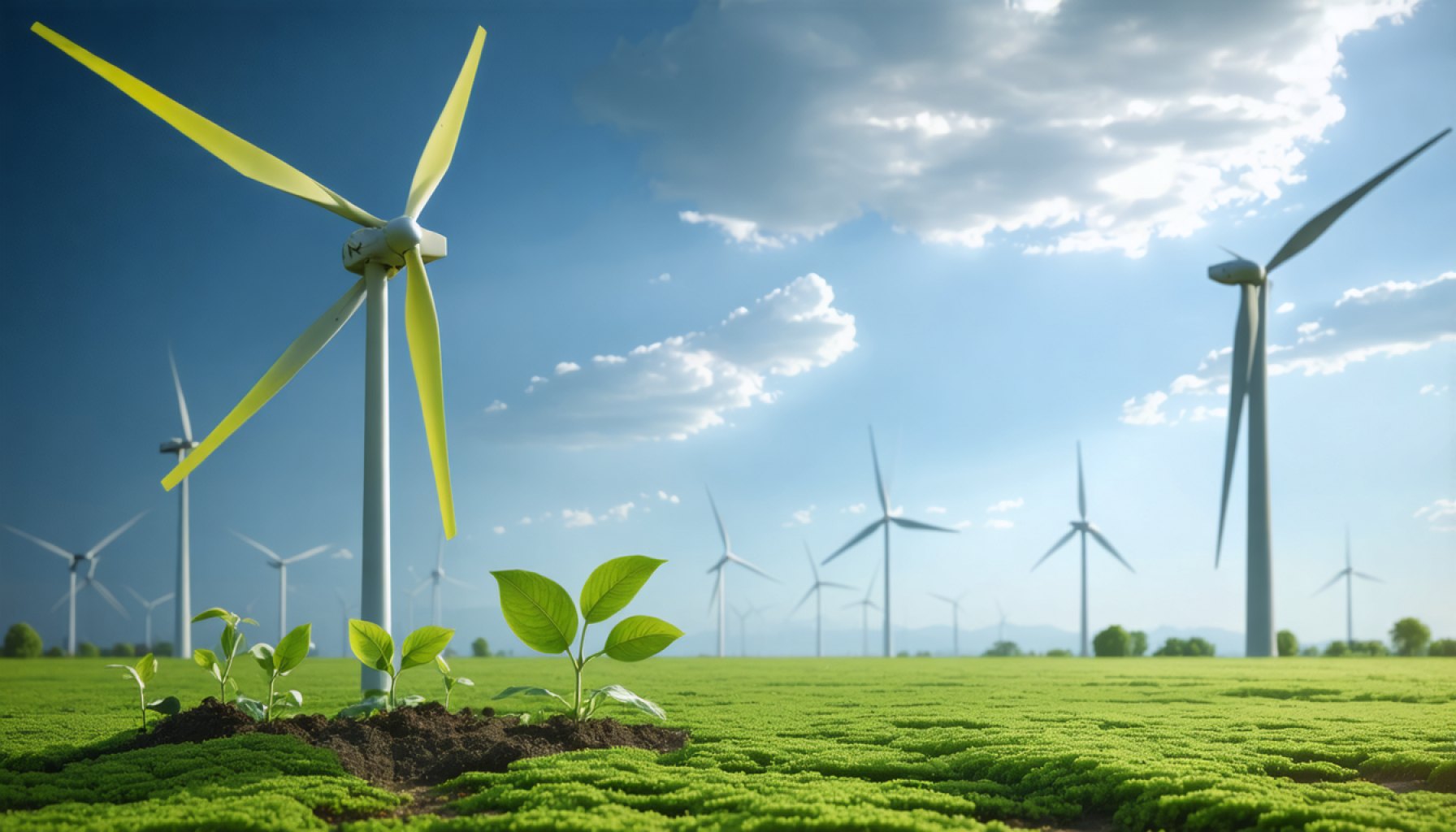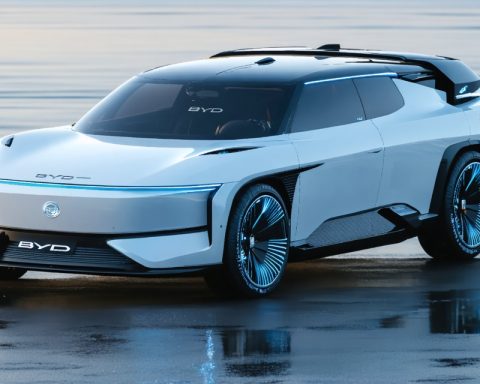- Clean hydrogen is emerging as a transformative force in the global shift towards sustainability, offering a pollution-free energy source.
- Unlike fossil fuels, hydrogen combustion produces only water vapor, highlighting its environmental benefits.
- Experts emphasize the importance of informed decision-making to navigate the complex hydrogen market, addressing challenges like costs and infrastructure.
- Major corporations are investing heavily in hydrogen technology, fostering innovations that could revolutionize global energy production.
- The potential of clean hydrogen signals a significant opportunity for a cleaner future, with the energy sector standing on the cusp of substantial evolution.
In a world racing towards sustainability, clean hydrogen emerges as the hero we didn’t know we needed. It’s not just another chapter in the energy saga; it’s a profound transformation. Picture a source of power as infinite as your imagination, one that fuels sectors from transport to industry without leaving a trail of pollution.
Amidst clanking machinery and bustling labs, scientists and business leaders focus intently on harnessing this elusive element. Hydrogen, the most abundant element in the universe, holds the promise of a cleaner future. Unlike its fossil fuel counterparts, when combusted, it releases only water vapor, painting a cleaner skyline for generations to come.
However, navigating this promising yet complex market requires more than just ambition. It demands insightful analysis and fearless examination of its potential and pitfalls. That’s where informed decision-making comes into play. Peering through the veil of hype, experts dissect the challenges—costs, infrastructure, and technology—and forecast the industry’s trajectory with precision.
For the global energy landscape, the stakes couldn’t be higher. Major corporations invest billions, sparking innovations that promise to revolutionize the way we power our world. But for leaders within this sector, the mission is clear-cut: translate potential into progress, ensuring that the revolution doesn’t falter.
As we stand on the brink of this energy evolution, clean hydrogen beckons like a beacon of hope. Its message is simple yet profound—if we dare to rethink and reshape our energy future, the sky is truly the limit.
Revolutionizing Energy: How Clean Hydrogen Could Power the Future World
Features, Specs & Pricing
Clean hydrogen, often referred to as “green hydrogen,” is produced using renewable energy sources to electrolyze water, effectively splitting it into hydrogen and oxygen. This method ensures that the hydrogen production process is zero-emissions, in contrast to “grey” or “blue” hydrogen, which rely on fossil fuels. The key feature of green hydrogen is its environmental impact—when used, it emits only water vapor, making it pivotal to decarbonizing sectors like transport and industry.
The production cost, however, remains a significant barrier. According to the International Energy Agency (IEA), the cost of producing clean hydrogen can range from $4 to $6 per kilogram, but advances in technology are expected to lower this to $1 to $2 per kilogram by 2030. Industrial investment in research is aiming to reduce these costs and improve the efficiency of the electrolyzers, the essential technology in the production process.
Real-World Use Cases
Clean hydrogen has a myriad of applications:
1. Transportation: Hydrogen fuel cell vehicles (FCVs) are being developed as an alternative to traditional combustion engines, offering long driving ranges and fast refueling times. Companies like Toyota, Hyundai, and Honda have already rolled out hydrogen-powered cars such as the Toyota Mirai.
2. Power Generation: Hydrogen can be used in power plants to provide a stable and reliable backup for intermittent renewable energy sources like wind and solar.
3. Industrial Applications: Hydrogen is being used to decarbonize heavy industries that are difficult to electrify, such as steel and cement production.
Market Forecasts & Industry Trends
The clean hydrogen market is projected to grow significantly. As per a Deloitte report, the hydrogen economy could be worth $2.5 trillion by 2050. Major investments are coming in from both governments and private sectors, with countries like Germany and Japan pioneering national hydrogen strategies.
Pros & Cons Overview
Pros:
– Zero emission when used, contributing to reduced air pollution.
– High energy content, making it a strong energy carrier.
– Can be stored and transported, aiding energy security.
Cons:
– High production costs and need for substantial initial infrastructure investment.
– Energy intensive production process limits current scalability.
– Limited refueling infrastructure for hydrogen vehicles.
Controversies & Limitations
One of the primary limitations of clean hydrogen is the current lack of infrastructure. Establishing a comprehensive network of pipelines and refueling stations is both costly and time-consuming. Additionally, the energy conversion process from electrolysis results in a significant energy loss, which critics argue could be a detractor against more direct electrification methods like battery vehicles.
Security & Sustainability
Hydrogen, when managed properly, is safe; however, due to its low ignition energy and wide flammability range, careful transport and storage is critical. Sustainable practices in its production, particularly from water electrolysis using solar and wind power, position hydrogen as a pillar in future energy sustainability.
Tutorials & Compatibility
With advancements, hydrogen fueling stations are becoming compatible with both vehicles and industrial applications. Tutorials for handling hydrogen safely are paramount, including regular training for personnel working with hydrogen systems.
Actionable Recommendations & Quick Tips
1. Invest in Infrastructure: Stakeholders, including governments and private investors, should prioritize the establishment of hydrogen production and distribution infrastructures.
2. Support Research & Development: Encouragement and funding for innovative research can lower costs and enhance efficiency in clean hydrogen production.
3. Promote Public Awareness: Educational campaigns are needed to inform the public and stakeholders about the benefits and safety of clean hydrogen.
4. Policy Implementation: Governments should introduce conducive policies to fast-track hydrogen adoption, including subsidies and tax incentives for producers and consumers.
5. Drive Cross-Sector Collaboration: Collaboration between industries is essential to create a comprehensive supply chain for hydrogen deployment.
For more detailed information about energy innovations and practices, visit the International Energy Agency (IEA).
In summary, while challenges remain for clean hydrogen, its potential to decarbonize and transform varied sectors is unparalleled. Embracing this opportunity today can carve the path towards a sustainable tomorrow.














